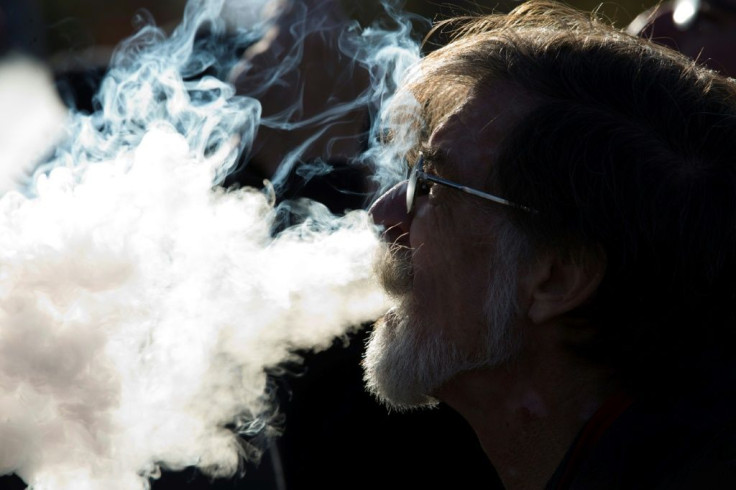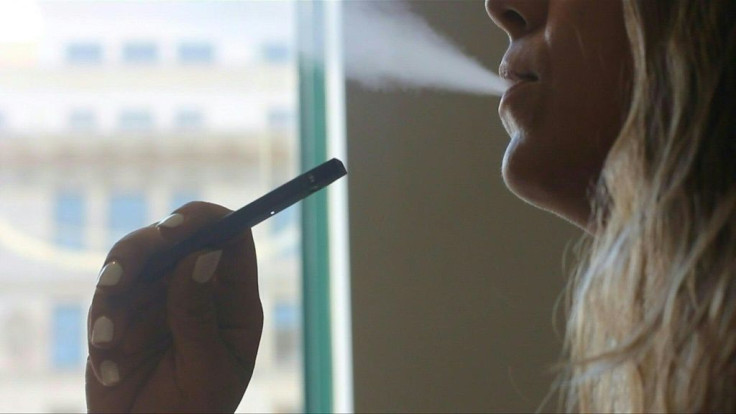US Unveils Partial Ban On Flavored E-cigarettes

The US government announced Thursday it was banning most flavored e-cigarettes in a bid to curb the rising tide of youth vaping, but under industry pressure it stopped short of the full ban promised in September by the White House.
The Food and Drug Administration (FDA) said cartridge-based e-cigarettes in flavors other than tobacco or menthol would be illegal unless specifically authorized by the government.
The change will take effect in early February, outlawing cartridges with fruit, mint and candy flavors, which are particularly popular with young people.
Juul, the e-cigarette industry leader, had anticipated the decision and withdrew those flavors from sale in the US, leaving only tobacco and menthol.
The ban will exempt large, tank-based rechargeable vaping devices, however, which are primarily sold in vape shops that cater to adults.
"It was the pod cartridge-based systems that got us into this problem that are most attractive to kids," Health Secretary Alex Azar said in a conference call with reporters.
"The kids simply are not using in any material level the open tank vaping systems," he added.
Companies that do not cease making and selling such cartridges will face punishment, the FDA said, without specifying the potential sanctions.
"The United States has never seen an epidemic of substance use arise as quickly as our current epidemic of youth use of e-cigarettes," Azar said in a separate statement.

"We aim to see whether e-cigarettes could serve as an effective off ramp for adult smokers addicted to combustible cigarettes. We believe that remains a possibility," he added.
In late summer, a health crisis marked by severe and sometimes deadly lung ailments added to overall concerns over the success of Juul products among American youths.
Some 28 percent of high school seniors said they had vaped in the previous 30 days, according to a government survey in 2019, compared with around 11 percent in 2016.
Azar had said in September after a meeting with President Donald Trump in the Oval Office that all flavors would be banned in an effort to curb youth vaping.
His announcement triggered a pressure campaign from the tobacco and vaping industries for the administration to reverse the decision. On Thursday, demonstrators chanted "We vape! We vote!" as Trump's limo drove by in Florida.

Speaking for a group of anti-tobacco advocates and public health officials who met with Trump in November, Matthew Myers, president of the Campaign for Tobacco-Free Kids, expressed dismay at the new rule, which he said "creates a giant loophole that will benefit the current existing tobacco companies."
The industry push highlighted the risk that Trump could lose votes in the 2020 election because of the proposed ban.
Trump said he would ultimately settle for raising from 18 to 21 the minimum age for buying vaping products, and the US Congress obliged late December with a vote banning both e-cigarette and tobacco sales to under-21s.
The change is due to take effect nationwide by September.
Since 2016 the FDA has had authority over vaping products and technically a specific pre-market authorization was needed to sell any of them.
But the agency chose not to enforce the rule. It preferred to watch how the market evolved in the hope that vaping could become a public health solution for tobacco smokers who want to quit.
Flavors other than menthol and tobacco will be banned starting in February for cartridge-based e-cigarettes. For other types of e-cigarettes, all flavors will remain authorized.
But all vaping products will need to request a pre-market authorization by May. They will be able to remain on the market for up to 12 months afterward.
Azar said prioritizing flavors most widely used by children would ensure e-cigarettes were not an "on-ramp" to nicotine addiction for youngsters.
"We will not stand idly by as this crisis among America's youth grows and evolves, and we will continue monitoring the situation and take further actions as necessary," he added.
© Copyright AFP {{Year}}. All rights reserved.




















